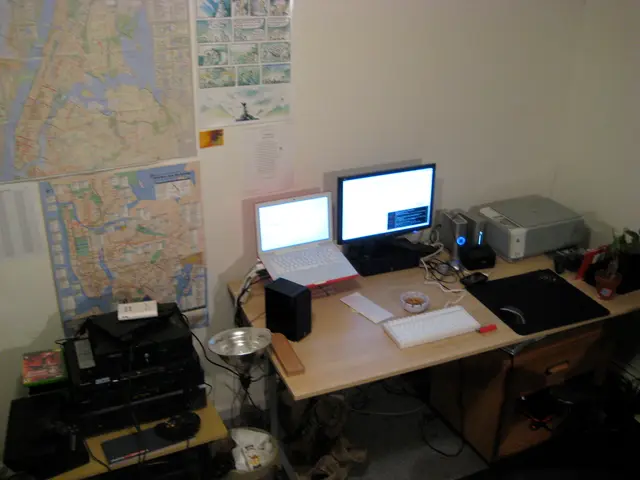Efficient Inventory Management: Crucial Points on Economic Order Quantity (EOQ)
The Economic Order Quantity (EOQ) is a valuable inventory management technique that assists businesses in making efficient decisions about their inventory levels. By determining the optimal order quantity, EOQ helps minimize combined costs of ordering and holding inventory, leading to more efficient use of storage space and capital.
Inventory management is a crucial component of a company's success. Having too much inventory results in higher costs due to maintenance and potential disposal, while having too little inventory means lost sales and missed opportunities. EOQ refers to the ideal amount of inventory a company should purchase to meet its demand while minimizing holding and storage costs.
The EOQ formula is essential in optimizing inventory management. It takes into account setup costs, product demand, and holding costs, and aims to find the balance that reduces unnecessary excess stock and avoids stockouts. EOQ assumes constant consumer demand and constant ordering and holding costs, but it's important to note that it has limitations. For instance, it cannot account for business events such as changing consumer demand, seasonal changes in inventory costs, lost sales revenue due to inventory shortages, or purchase discounts a company might realize for buying inventory in larger quantities.
From a cash flow perspective, EOQ affects businesses by minimizing total inventory costs. These costs include ordering costs (like administrative and transportation expenses) and holding costs (such as warehousing, insurance, and opportunity costs of tied-up capital). By ordering the optimal amount, a business reduces the frequency of orders and the amount of capital locked in inventory, thus improving cash flow and freeing up resources for other uses.
In terms of inventory management, EOQ defines the exact quantity to order to meet demand without overstocking or understocking. It prevents excessive inventory that ties up space and capital, and avoids stock depletion that could disrupt sales or production. EOQ enhances warehouse efficiency and simplifies reordering decisions.
From a cash flow standpoint, EOQ limits excessive cash tied up in inventory, improving liquidity. It reduces ordering costs by optimizing order frequency and balances carrying costs, ensuring capital is not wasted on storing surplus goods or spending too heavily on frequent restocking.
The EOQ model works best in stable demand and supply conditions. However, it may not account well for sudden changes or disruptions in demand or supply chains, which can affect inventory and cash flow unpredictably.
In summary, using EOQ allows businesses to manage inventory more effectively and maintain healthier cash flow by minimizing unnecessary costs related to overstocking and ordering inefficiencies. By optimizing their inventory management, businesses can improve their overall efficiency, free up resources, and make more informed decisions for their operations.
[1] Inventory Management: Principles and Practices, Thomas J. Lee and Gerald J. Corrigan [2] Operations Management, Richard M. Grossman and David M. Patterson [3] Inventory Management: Techniques for Efficient Inventory Control, Robert A. Cohn [4] Principles of Operations Management, Ralph K. Peters and William H. Stahl [5] Inventory Management: Strategies and Applications, J. Paul Dittmann Jr. and Robert A. Byrnes Jr.
- Adopting the Economic Order Quantity (EOQ) in finance and technology-driven businesses can lead to improved lifestyle by promoting efficient inventory management and reducing costs associated with mining, ico, and business operations.
- EOQ can help businesses in various industries, such as mining, ico, finance, and lifestyle sectors, by enhancing warehouse efficiency, simplifying reordering decisions, and limiting excessive cash tied up in inventory.
- As technology advances and digital platforms like defi and ico become increasingly prevalent in finance and lifestyle sectors, understanding and implementing EOQ can provide a competitive edge by optimizing inventory management and improving business operations.




